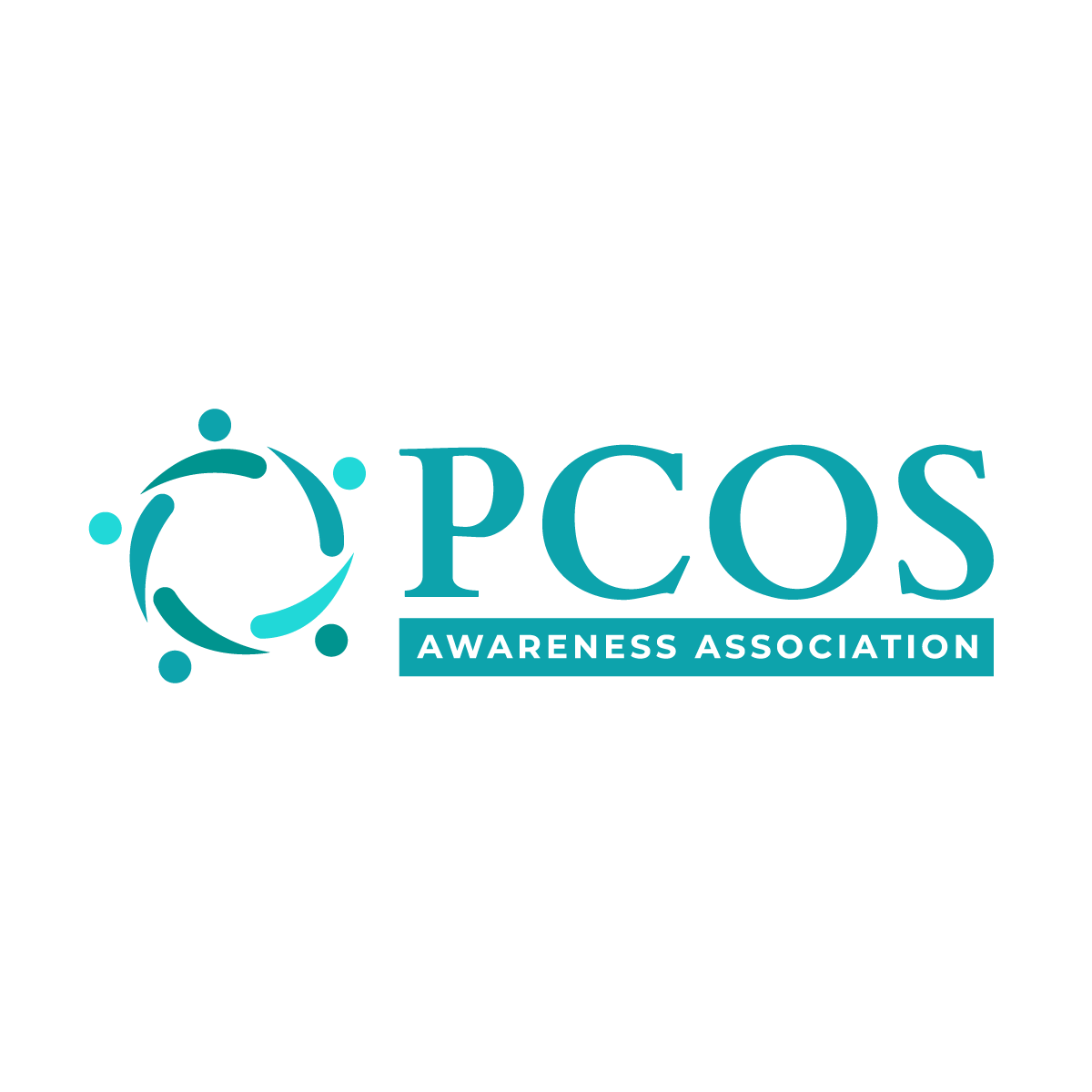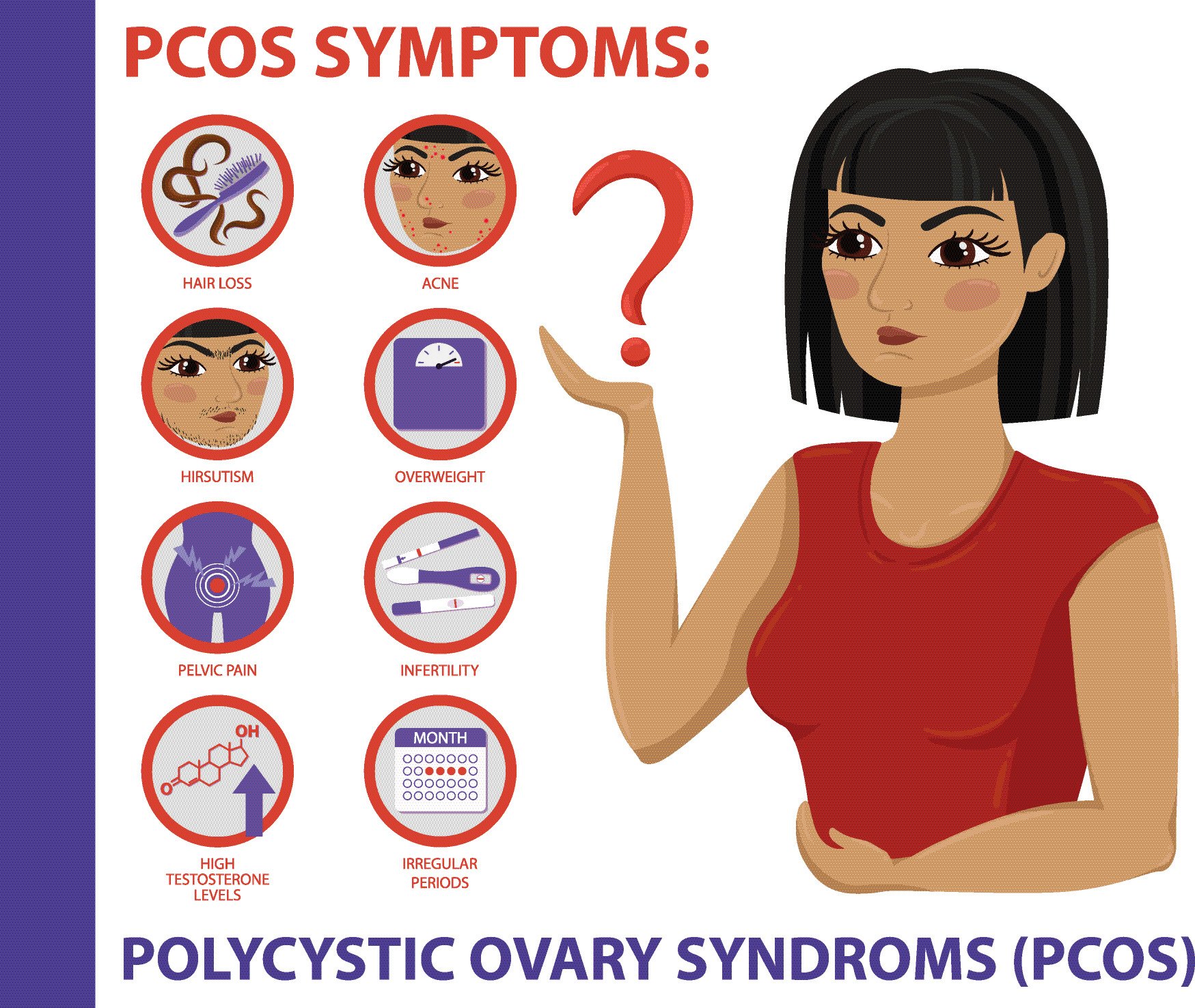PCOS Diet
How Diet Affects Polycystic Ovary Syndrome
What is Polycystic Ovary Syndrome? The formation of multiple cysts in the ovaries. One of the main symptoms or indications for polycystic ovary syndrome (PCOS) is irregular periods, which is known as amenorrhea. Women suffering from this condition later find out that their ovaries are overrun by multiple cysts. This overgrowth of cysts is caused by an overproduction of androgens. Statistics show that over 50% of women who suffer from PCOS are either overweight or obese. If you are among these statistics you may want help to lose weight, if so you are in the right place. Keep reading as we explore the PCOS diet as well as what to eat and what not to eat when you have PCOS.
Aside from irregular periods or amenorrhea, women suffering from PCOS may also experience the following symptoms:
Excessive hair
Male pattern baldness
Acne
Infertility
Pelvic pain
High levels of testosterone
Women suffering from PCOS and not managing their symptoms are putting themselves at great risk for the following:
Diabetes
Endometrial Cancer
Heart Disease
High Blood Pressure
These are just some of the complications that may come along with PCOS. By simply controlling their diet and making certain lifestyle choices, women can manage their PCOS symptoms and reduce their risk for other medical conditions
Types of PCOS
Insulin-Resistant PCOS
Insulin resistant PCOS is the most common type of PCOS. It is most often caused by a high intake of trans fat, high sugar intake, smoking, and pollution. High levels of insulin in the body trigger the ovaries to make testosterone and prevent ovulation.
Inflammatory PCOS
Inflammatory PCOS is caused by inflammation from toxins in the environment, stress, or a diet with gluten. This inflammation prevents ovulation and hormones become imbalanced while the body starts to produce androgens. Some things that may indicate this type of PCOS include increased levels of thyroid, abnormal blood count, and vitamin deficiency.
Hidden-Cause PCOS
This is the simplest cause of PCOS. Once the cause is found and addressed, women can recover within 4 months.
Most often the causes of this type of PCOS are:
Zinc deficiency
Use of Artificial Sweeteners
Iodine deficiency
Thyroid disease
Vegetarian diet
Pill-Induced PCOS
Pill induced PCOS is the second most prevalent type of this condition. It is caused by the use of birth control pills which reduce ovulation. Most women find that the effects go away with time, and they can start ovulation as soon as the effects of the pills wear off. For some women, this resumption takes months and even years.
How Your Diet Affects PCOS
Most PCOS sufferers have abnormally high insulin levels. If your body is not using the insulin, it produces you are insulin resistant and your body will continue to produce insulin in an effort to get your blood sugar to normal. Once your insulin levels get too high your ovaries will start to produce androgens like testosterone in abnormal amounts.
Having a body mass index (BMI) above normal can also cause insulin resistance. This in turn makes it harder for women to lose weight. This is why so many women who have PCOS have weight issues. Add to this a diet that is high in starchy and sugary foods along with refined carbohydrates and you will have increased insulin resistance and increased difficulty with weight gain.
Foods To Add to Your Diet
Include more of the following items in your diet as much as possible:
Turmeric
Tomatoes
Spices
Broccoli
Vegetables high in fiber
Lean protein
Consuming a diet that is higher in fiber helps to combat insulin resistance. They do this by slowing down digestion and thereby causing a reduction in the impact of the sugar on your blood. Here are some of the best options to add to your PCOS diet when it comes to high fiber foods:
Almonds
Berries
Winter squash
Sweet potatoes
Pumpkin
Chicken
Tofu
Fish
Green peppers
Red peppers
Broccoli
Brussels sprouts
Cauliflower
Arugula
Red leaf lettuce
Lentils
Beans
A high protein diet is likely to be more filling and can provide a reduction in insulin levels. Both of these benefits will have a positive effect on your symptoms. Choose healthy sources of protein to include some dairy products, beans, eggs, fish, and lean meat.
The following foods are great for reducing inflammation:
Blueberries
Strawberries
Salmon
Sardines
Omega-3 fatty acids
Kale
Tomatoes
Spinach
Walnuts
Almonds
Olive Oil
What to Drink on a PCOS Diet
When it comes to what to drink, one of the best things you can drink for PCOS is green tea. This drink is rich in antioxidants which have anti-carcinogenic and anti-inflammatory effects and can prevent cell damage.
Women with PCOS are strictly prohibited from drinking dairy products. While you can drink some milk, the amount you drink must be limited. Excess consumption of milk can cause an increase in blood sugar and can even stimulate some insulin growth factors.
What Not to Eat When you Have PCOS
Red meats
Breakfast pastry
Any food item made with white flour
Pasta made from
Durum wheat flour
Durum flour
Semolina
Avoid the following foods:
White Bread
Muffins
Sugary snacks
Sugary desserts
Sugary drinks
Processed foods
These foods are known for their ability to exacerbate insulin resistance, so you want to avoid them entirely. If you are just starting out you can start by limiting these foods and then reducing the amount until you completely remove them from their diet.
Sugar should be avoided whenever possible, so this means you will have to really pay attention to your food labels. Avoid foods with the following names in the ingredient list:
Sucrose
Dextrose
High Fructose corn syrup
Make sure you check your beverages as it is very commonplace that we find sugar lurking. Other foods to avoid or remove from your diet include margarine, fries, and processed meats.
Lifestyle Changes to Help Manage PCOS Symptoms
Like many other disorders, PCOS responds well to proactive lifestyle choices. This includes physical movement or exercise at a higher frequency. Physical activity is known for its ability to reduce insulin resistance. This is especially true when you integrate a healthy diet and limit your intake of carbohydrates.
Experts note that exercise up to 150 minutes per week is ideal. This should be broken down into daily activity and be coupled with a diet that is low in inflammatory foods and low in sugar. With these changes, women can see an improvement in ovulation and weight loss.
PCOS and Stress
PCOS symptoms can cause stress. It is imperative for you to understand how to use stress reduction techniques to help you keep calm. These include meditation and yoga. Talking with your therapist or another medical professional can also be beneficial in helping you cope with the stress.
Best Exercises for PCOS
You can engage in moderate exercise to include any of the following:
Swimming
Jogging
Brisk walking
Cycling
These types of exercises are great for helping to increase your body’s sensitivity to insulin. This can help to reduce your risk of type 2 diabetes and cardiovascular disease.
Coping with PCOS
Coping with PCOS and its associated symptoms can be hard. It’s easy to become frustrated, but with the right steps, you can reduce your symptoms, improve your mood, and improve your health. The best place to start is with a PCOS diet.
Don’t worry about the foods you love, because every food you want to enjoy but is problematic for your PCOS has a healthy alternative. Substitution is the key to enjoying food while not aggravating your PCOS.




